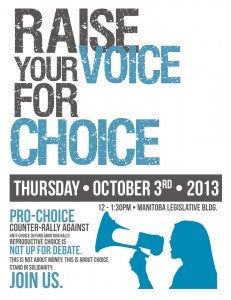Right of First Refusal is a form of job security. When a Sessional Instructor has Right of First Refusal over a particular course, (s)he will be given the opportunity to accept or reject an offer for that course. That course will only be posted and applications considered if the Sessional Instructor with RFR rejects the position.
What is Right of First Refusal 1?
RFR1, is designed to reward a Sessional Instructor who specializes in one or two courses. S/He must teach the same course five times over a minimum period of 18 months to benefit from prioritized hiring.
What is Right of First Refusal 2?
RFR2 is designed for Sessional Instructors who teach a wide variety of courses. In order to be eligible for RFR2, a Sessional Instructor must teach a course three times in separate academic terms, but they must also have a total of 30 credit hours and at least 18 months of experience within her/his department. If you continue working, you will eventually be eligible for RFR1.
What if more than one person has RFR over the same course in my department?
RFR1 will always trump RFR2. If two Sessional Instructors have RFR1 (or RFR2) over the same course, the one with seniority will have the first choice. (S)He may invoke RFR over one section of the course per term. Then, whoever is next in seniority may invoke RFR over another section. After all eligible Sessionals have had the chance to invoke their RFR, the remaining sections will be posted. Any Sessional, including those with RFR may submit an application.
What if I teach courses in different departments?
Right of First Refusal is department specific. Courses taught in different departments will be calculated separately towards eligibility in each of your departments.
What if I teach the same course in-class and online?
Courses taught online will be counted separately from courses taught in class. When the University considers your eligibility for either of the RFRs, it should look at both online and in class courses but prioritized hiring will be separate.
What happens if some of my courses are not degree credit courses?
RFR1 and RFR2 only apply to degree credit courses. Non degree credit courses do not count towards eligibility.
Do courses I teach on other campuses count towards Right of First Refusal 2?
The calculation of hours that determine your eligibility will only include degree credit courses taught at Fort Garry and Bannatyne campuses as well as courses taught at off-site locations (The Pas, Thompson, etc.) that are part of the University of Manitoba. Distance and Online Education courses taught through Extended Ed are eligible, provided that they are degree credit courses, but they are counted separately from in class courses. Classes taught through the International College of Manitoba, Université de Saint-Boniface, Red River College, University of Winnipeg, Canadian Mennonite University, Booth University College or any other post secondary institution are not eligible.
What if I taught some of my courses while I was working on my degree?
RFR1 and RFR2 only apply to courses taught under the UNIT 2 (Sessional Academic Worker) Collective Agreement. If you were a registered student when you taught a course, you were hired under the UNIT 1 (Student Academic Worker) Collective Agreement and benefited from a different set of protections called JSP/Continuance.
I co-teach a course. Can I get RFR on that course?
You may be eligible for RFR on the portion of the course for which you are responsible.
What do I do if all the courses I’ve taught don’t appear in AURORA?
The information that appears in your AURORA account is entered by your home department for each course. If some of those courses are missing, you should contact your department and ask them to correct the information. If you work for more than one department, contact all of them. It is important for you and your Faculty to have an accurate record of your work history so that you can be aware when you are eligible for the new righs/benefits enshrined in the Collective Agreement.
What if I’m not eligible for either form of RFR yet?
Every term, the University will send out a message/letter to every Sessional Instructor who has become eligible for RFR1 or RFR2 at the end of the previous term. You will be able to invoke RFR when courses are offered in the term subsequent to receiving confirmation.
If you have a question that isn’t answered here, contact us.

